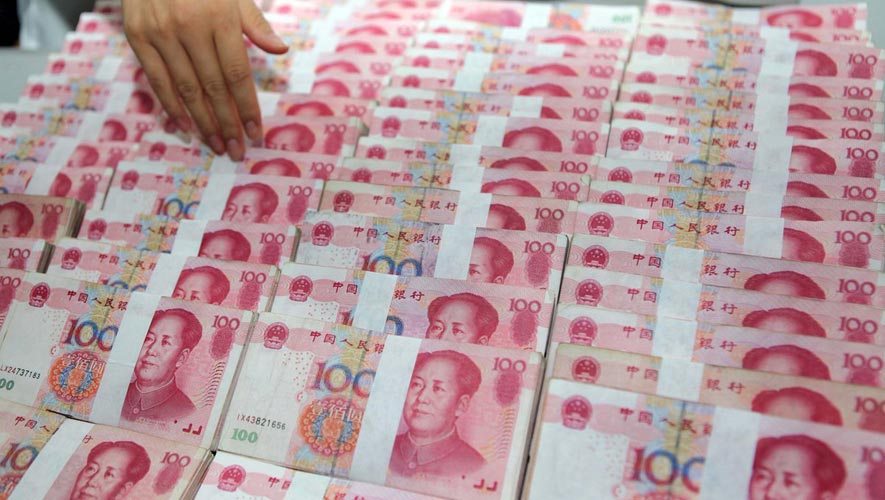An escalation of the US-China trade war and the subsequent devaluation of the Chinese yuan (RMB) in the first week of August sent global stock markets tumbling and, according to analysts who follow China, the country’s economic woes are only deepening.
For the latest Cambodian Business news, visit Khmer Times Business
That could have a major impact on smaller countries in the region such as Cambodia, experts say.
The International Monetary Fund (IMF) warned on August 11 that a protracted trade war would slow China’s economy further and pegged the country’s GDP growth at 6.2 percent.
“A further escalation of the trade tensions, for example, the US raising tariffs to 25 percent on remaining imports, could reduce growth by around 0.8 percentage points over the following 12 months,” James Daniel, the IMF’s mission chief to China said on a conference call.
The IMF forecasts that additional 10 percent tariffs announced by US President Donald Trump could slow the growth by 0.3 points in the coming year.
Some economists call the IMF forecast overly generous. Christopher Balding, an associate professor at Fullbright University Vietnam, who has studied China for more than a decade, pegs the real number at well under 6 percent.
Balding says even the smallest percentage loss will be felt by countries such as Cambodia. “You will see falling levels of outbound investment,” he says. “Countries that rely on China for a lot of investment will see a major spillover impact.”
Cambodia’s economy is already expected to slow, according to a June report by the Cambodian government.
A slowing Chinese economy combined with the expected end of the EU’s Everything But Arms (EBA) treaty could spell trouble.
Cambodia’s economy is projected to shrink from 7.1 percent growth to 6.5 percent growth, according to the June report detailing the preparation of a draft financial law for next year. The report states that increasing uncertainty and global economic challenges put Cambodia’s economy at risk. Factors contributing to a decline in economic growth, according to the Cambodian government, include the downturn in the Chinese economy and the negative effects of the China-US trade war.
New 10 percent tariffs
The Chinese currency rose above the traditional 7 yuan per dollar threshold for the first time since 2008 after Trump slapped the new 10 percent tariffs on $300 billion of additional Chinese goods.
China’s central bank has all but indicated that the currency will remain above that figure for the time being, a move that helps Chinese factories offset the costs of the tariffs. China also announced it will no longer purchase US farm products such as soybeans, a decision that targets Trump’s re-election campaign.
According to analysts and economists, however, the number is probably where it should realistically be.
And it is not simply the trade war that is creating financial headaches for Beijing. China is suffering from massive debt and other factors that have led to a cooling economy in the past year. The knock-on effect of a Chinese slowdown is still unclear, but it is roiling regional and global markets.
On August 7, central banks in India, Thailand and New Zealand cut interest rates in what one analyst called a “defensive action” amid fears of worsening US-China tension.
Currency-cutting strategy
China’s currency-cutting strategy has the potential to run up an even higher debt load than already exists for China, without the growth to justify it.
China’s debt-to-GDP ratio is hovering at 300 percent, according to the Institute of International Finance.
Balding says the real number is probably around 330 percent. “It’s a problem for China. They may have to make hard decisions and they don’t want to,” he says. Balding says he is personally sceptical China will let its currency fall further because it is too expensive. China has $2 trillion of debt. If it lowers its currency by 10 percent that number goes to $2.2 trillion.
Although US tariffs are hitting China hard, many say it is not the main source of China’s economic slowdown.
According to Panos Mourdoukoutas, a professor and chair of the Department of Economics at Long Island University Post in New York writing in Forbes magazine, multiple bubbles, including a property bubble, and soaring debt, will eventually kill economic growth in the country. Mourdoukoutas compares the situation with what took place in Japan in the 1980s. There are also comparisons with what happened in the United States in 2008.
“A rapidly ageing population, a falling birth rate, a tightening Federal Reserve and a slowing global economy have combined to put the brakes on China’s economy,” according to Balding.
He says that China’s slowdown began last year when the company experienced its slowest economic growth in nearly three decades. Wage growth has cooled and manufacturers are shedding jobs.
“China’s problems stem primarily from decisions made years — in some cases decades — ago. In the past, China benefited from a growing workforce that boosted GDP both by adding workers and because younger workers tend to be more productive than older ones. But around 2012, the working-age population began to shrink, the inevitable result of the [then] one-child policy, which was enacted in 1979. The decline in growth rates owes in part to this demographic winnowing,” Balding wrote in Foreign Affairs magazine.
He added that if China’s problems persist they will present a lot of stress for countries including Cambodia and others in the region.
“It is absolutely one of the countries that are most dependent on China,” Balding says.




